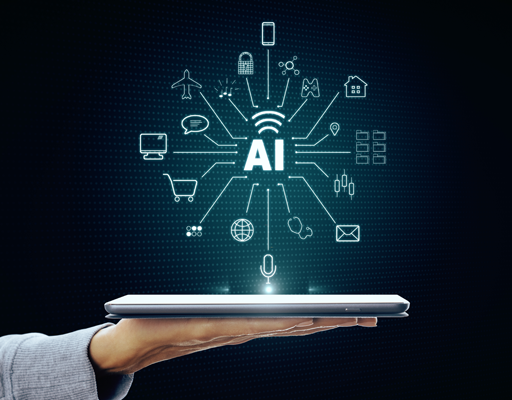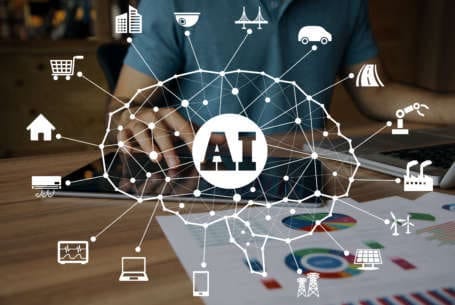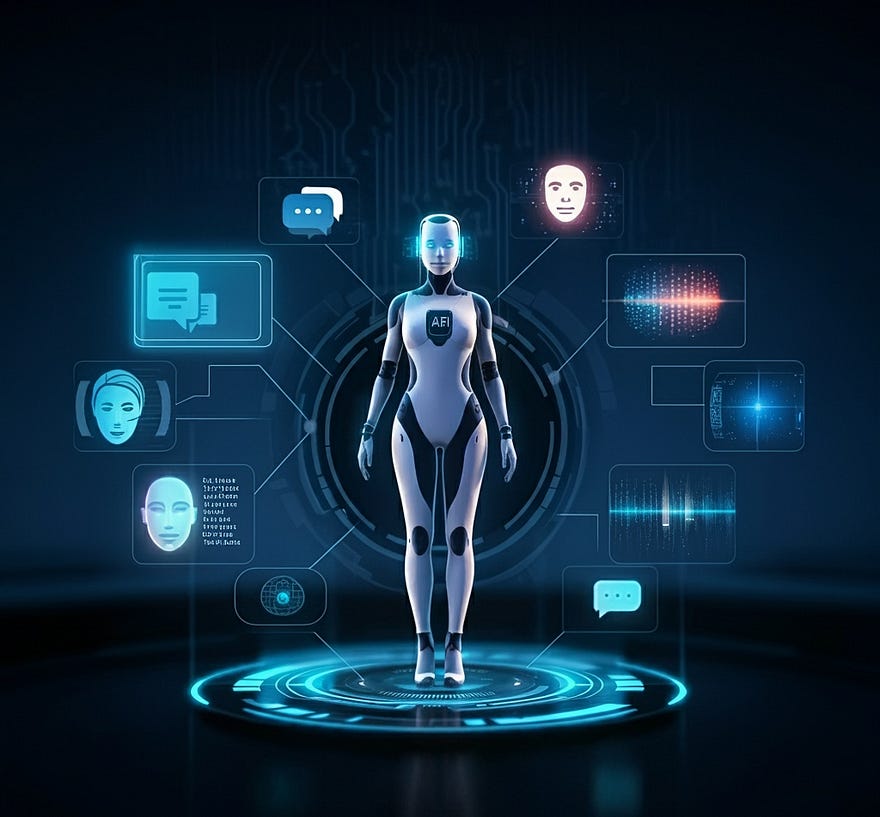Unraveling the Enigma of Artificial Intelligence
What It Is, What It Isn’t, and Why It Matters
 |
| Artificial intelligence |
Artificial intelligence (AI) is everywhere it’s a buzzword that permeates our daily lives. It dominates headlines, fuels technological advancements, and even sparks philosophical debates. But what exactly is AI? And why is it so challenging to define?
Let's embark on a journey to explore the intricate world of AI, dissecting its definition, applications, and implications.
AI in Action: A Glimpse into Its Transformative Power
 |
- Self-Driving Cars: These engineering marvels rely on an intricate interplay of AI techniques. Search and planning algorithms determine optimal routes, computer vision systems identify obstacles and decision-making capabilities navigate the complexities of dynamic environments. The potential implications are vast, encompassing improved road safety, enhanced logistics efficiency, and a shift in human roles toward supervision.
- Content Recommendation: From personalized social media feeds to tailored online advertisements, AI algorithms curate the information we encounter daily. These algorithms analyze our preferences and behaviors to deliver content we will likely engage with. This raises concerns about potential filter bubbles, echo chambers, and the spread of misinformation.
Image and Video Processing:
AI-powered facial recognition is already commonplace in various applications, from photo organization to passport control. Similar techniques enable autonomous cars to perceive their surroundings and estimate wildlife populations. Furthermore, AI can generate and manipulate visual content, blurring the lines between reality and fabrication. This raises critical questions about the authenticity of visual media.
The Elusive Definition of AI: Unpacking the Complexity
Despite its pervasiveness, defining AI remains a perplexing endeavor. The term often encompasses diverse concepts and technologies, leading to ambiguity and confusion. Here are three key reasons why:
- No Universally Agreed Definition: Even within the AI research community, a precise definition remains elusive. The field is continuously evolving, with some topics reclassified as non-AI while new ones emerge. A humorous yet insightful definition suggests that AI comprises "cool things that computers can’t do." This implies that as soon as a task becomes achievable by computers, it ceases to be an AI problem.
- The Influence of Science Fiction: The portrayal of AI in science fiction further complicates its understanding. Fictional representations often depict humanoid robots with human-like intelligence, sometimes exceeding human capabilities. While these portrayals serve as metaphors for the human condition, they contribute to unrealistic expectations and misconceptions about AI.
- The Paradox of Perception: Tasks that humans find effortless, such as grasping objects, prove remarkably challenging for robots. Conversely, tasks perceived as complex, like playing chess, can be readily solved by computers. This discrepancy highlights the difficulty in discerning the true complexity of AI tasks.
Towards a More Meaningful Definition: Embracing Autonomy and Adaptability
Moving beyond simplistic definitions, a more useful approach is to identify key characteristics of AI. Two prominent attributes are:
 |
| Artificial intelligence |
- Autonomy: The ability of AI systems to operate in complex environments without constant human intervention.
- Adaptivity: The capacity of AI systems to enhance their performance through learning from experience.
However, even these terms can be misleading. Assigning human-like qualities like "understanding" or "intelligence" to AI systems can create false impressions about their capabilities.
Navigating the Nuances of AI Terminology: Avoiding "Suitcase Words"
Embracing the Spectrum of "AIness": A Multifaceted Discipline
Rather than rigidly categorizing something as AI or non-AI, it's more appropriate to consider a spectrum of "AIness." Some methods clearly fall within the realm of AI, while others exhibit only a "pinch of AI." It's crucial to remember that AI is not a single entity but a scientific discipline encompassing concepts, problems, and solution methods.
Furthermore, it's more accurate to refer to "an AI method" rather than "an AI," aligning with the understanding of AI as a scientific discipline. Headlines and discussions should accurately reflect the capabilities of AI systems and avoid misleading claims.
Embracing the Future with a Balanced Perspective
AI is a rapidly evolving field with transformative potential across various domains. While defining it precisely remains a challenge, understanding its core characteristics and navigating the nuances of its terminology is essential. As AI continues to permeate our lives, a balanced perspective that acknowledges both its possibilities and limitations is paramount. By demystifying the enigma of AI, we can better harness its power for the betterment of society.




No comments:
Post a Comment